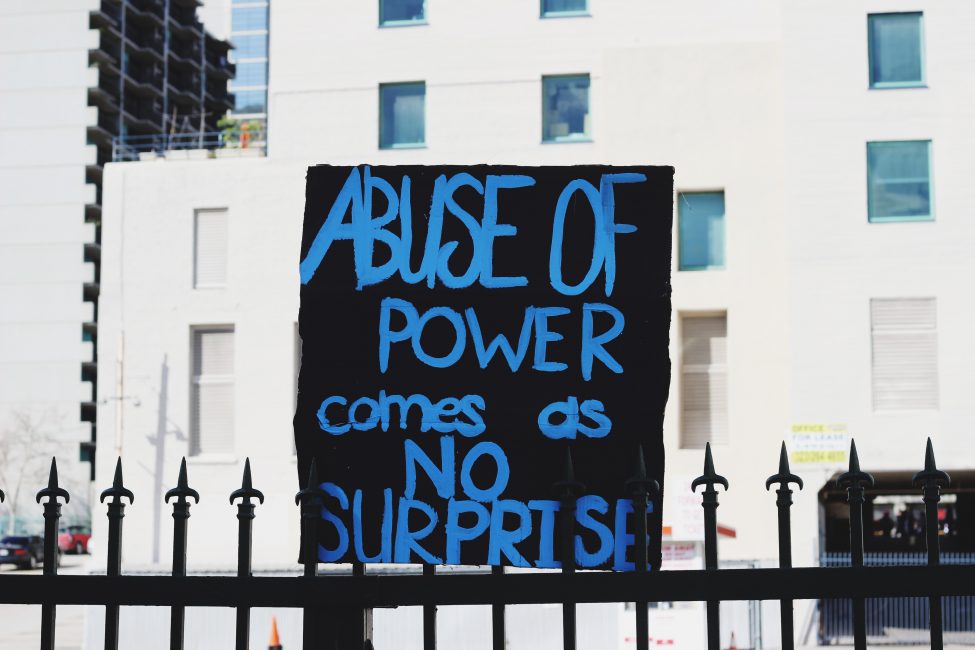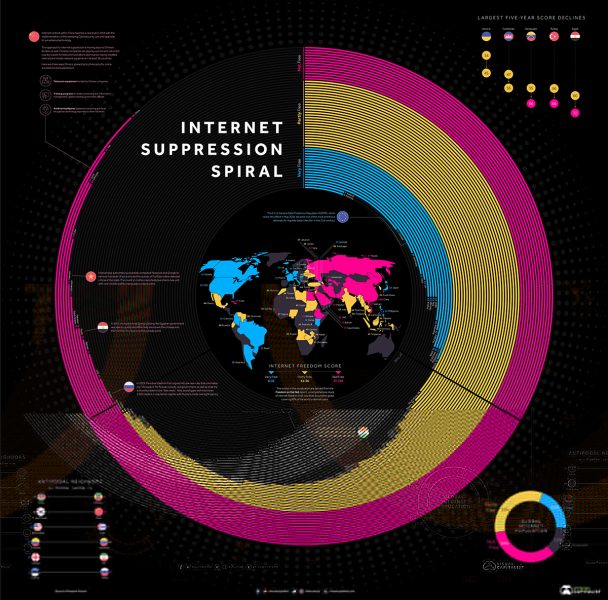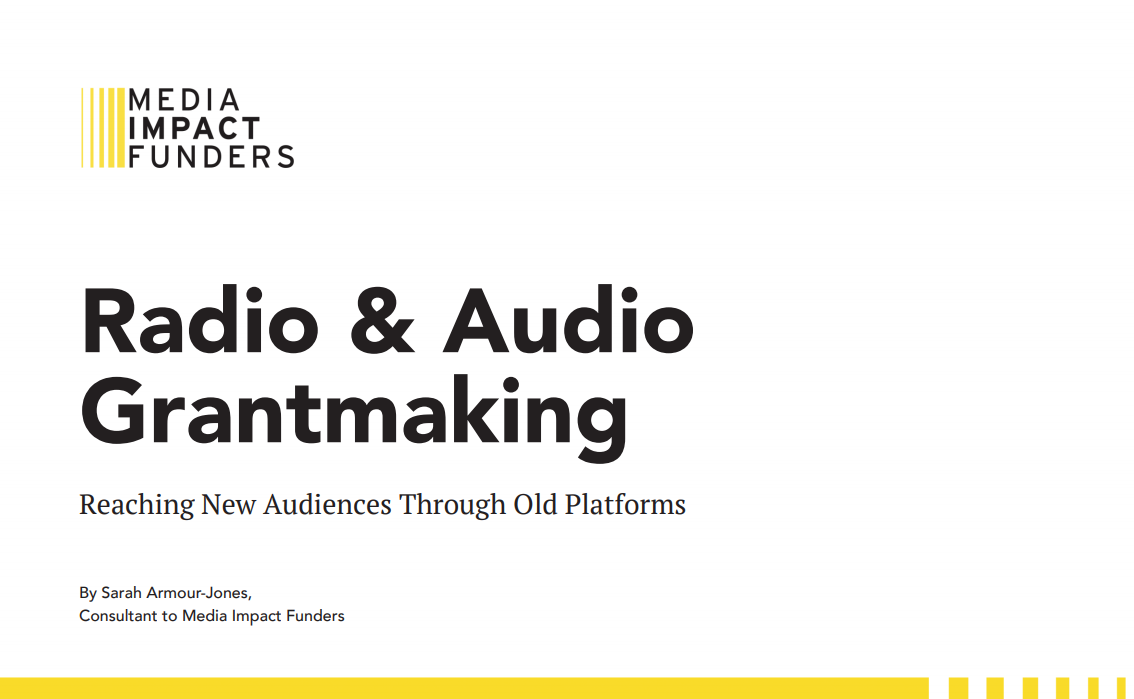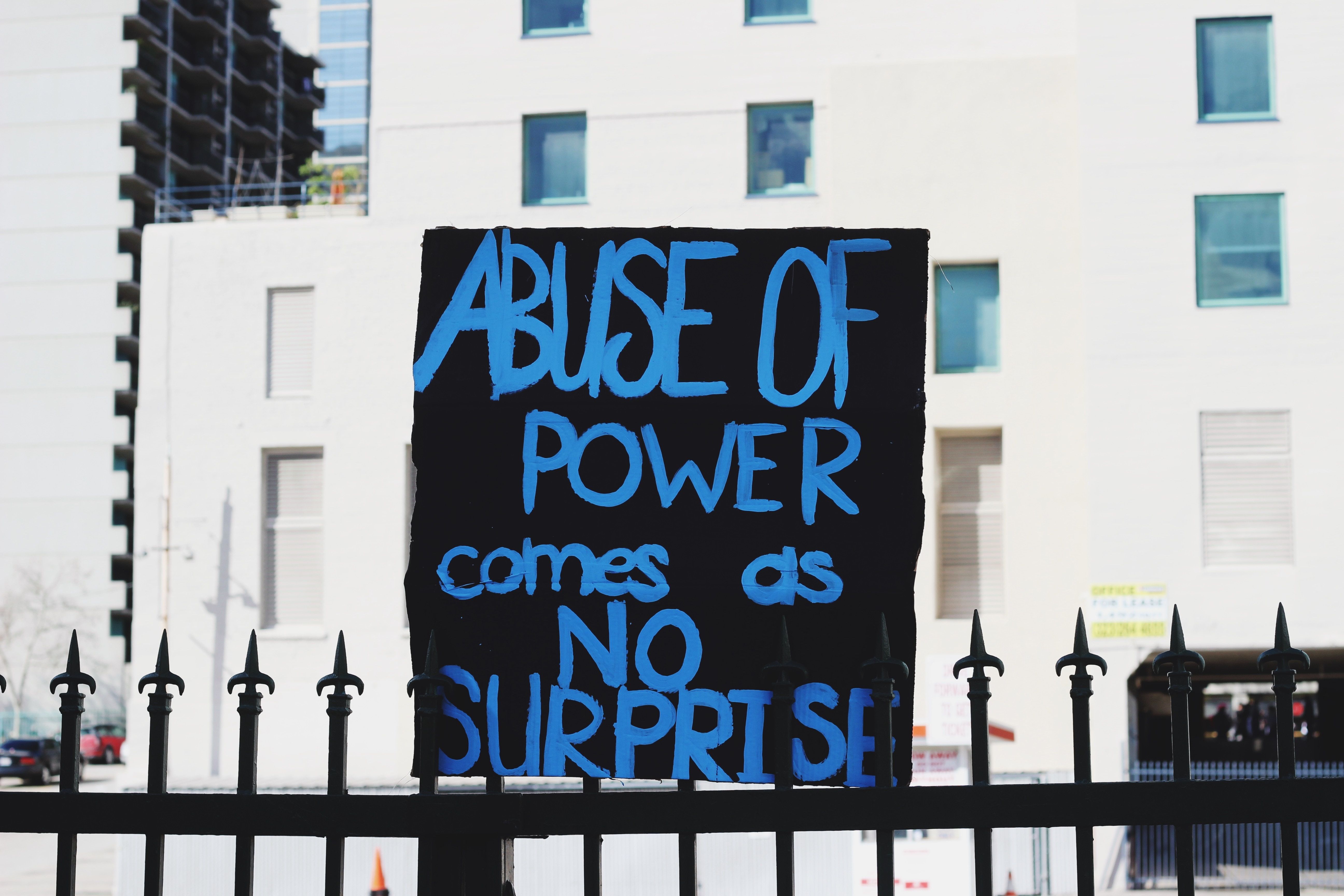Highlights:
- Half empty or half full?
- Are retweets really the answer?
- Avoidance, evasion, illegal, illicit, abusive, criminal? Not all terms are created equal
- Debt extraction
- Countering the counterfeiters
- Absurdist reflections
- Top 5 tips to become a social design influencer
- TAI spotlight: Selecting a fiscal sponsor to the right to data
In case you missed it…
Half empty or half full?

Photo: Samantha Sophia on Unsplash
As the open government community gathers in Ottawa this week for the Open Government Partnership Global Summit, expect discussion of what to do about growing restrictions on civil society and threats of “open-washing.” Just in time, Karl O’Conner, Colin Knox, and Saltanat Janenova flag the risks of “half-open” government” as increasingly authoritarian governments become more adept at retaining an open outward agenda while obstructing implementation internally i.e. vested interests remain largely unaffected.
How well are NGOs responding to such tactics? As detailed in Stanford Social Innovation Review, Southern NGOs seem to be adapting more effectively than Northern counterparts and are making a bigger impact, not least via digital activism that upends more traditional forms of activism.
Perhaps not surprising then to see governments turn increasingly to Internet shutdowns and restrictions. Visual Capitalist, using data from Freedom House’s Freedom on the Net Report, visualizes global internet suppression ranked by country. While India may be the world’s largest democracy, its numerous purposeful internet shutdowns contribute to a poor ranking, lower than Singapore, Malawi, and Nigeria. How to conduct effective digital activism in such contexts? Photo: Visual Capitalist
Photo: Visual Capitalist
Long read

Sarah Armour-Jones’ new report for Media Impact Funders examines how the media industry is helping reach new audiences and how philanthropic spending has fueled a radio resurgence.
Are retweets really the answer?
In the face such trends, Mobilisation Lab argues that civil society needs to be more courageous, experiment, and ask why – “why will thousands of retweets help advance human rights”, and “Why are we making that assumption”? Consider this food for thought when designing your next project. Accountability Lab did when they set out to understand their own legitimacy. The Lab argues that CSOs “build legitimacy based on the impact they have.” Have your project’s retweets and likes made an impact? How do you know?
What of trust in data more broadly? Expect much discussion in Ottawa not just on data disclosures but on data governance. One way to steward data? Trusts. We’ve referenced stories on this theme in previous weeklies, and now Keith Porcaro argues that data trusts can boost the professionalization of data management for public goods, such as health.
Bringing a gender lens to data is another hot topic, and the World Bank adds to debates on measuring gender equity around the world with the release of the disaggregated Little Data Book on Gender. Good news, the data show marked improvements toward equality in education and health. Looking for other international initiatives on gender equity? Check out the Open Government Partnership’s new campaign, “Break the Roles,” aiming to have 30% of OGP members “take meaningful action on gender and inclusion in 2019.”
Data can do more than just monitor progress; it can help avert disasters. Citing the recent Brumadinho dam collapse in Brazil, Paulo de Souza Jr. argues that quality data is an underlying requirement for effective management. Data from accidents like the dam disaster should be better utilized to prevent future disasters, but unfortunately, only a few datasets are publicly available. Perhaps this a potential civil society project?
Avoidance, evasion, illegal, illicit, abusive, criminal? Not all terms are created equal
TAI joined many groups working on international tax and illicit financial flows last week – convened by the Norwegian development agency, Norad – and one bugbear of those in the room is the conflation of tax avoidance as fully legal. Nick Shaxson, must have been hearing the complaints as he clearly explains in the Financial Times that “No, Corporate Tax Avoidance is Not Legal.”
To help combat tax avoidance, the European Union (EU) created the tax haven blacklist, a list of countries that may face heightened scrutiny with EU transactions. Earlier in March, Aruba, Bermuda, and Barbados were added to the list, but have just been removed. Aruba has enacted legislation to make it compliant while Bermuda and Barbados have “committed to addressing EU concerns,” and move to a greylist for now, given the benefit of the doubt.
What about US legislation for tax havens? Senators Klobuchar, Van Hollen, and Duckworth have introduced a series of bills aiming to reform international tax. Removing Incentives for Outsourcing will prevent US companies to “use excess foreign tax credits to shelter profits in tax havens.” The Disclosure of Tax Havens and Offshoring Act will make country by country reporting the law of the corporations to, ah-hem, iluminate how corporations are utilizing these tax havens.
Talking of which, Alan Hudson comments on TAI member Luminate’s new strategy and the importance of maintaining the abuse of public resources as a center point – there is still a case to be following the money.
Debt extraction
As the situation in Venezuela continues to deteriorate and debt continues to mount, creditors want to ensure they get repaid. Many see oil reserves as their best hope, but CNN reports that although half of all Venezuelan oil production is already used to service international debt, which is now worth more than six times the value of oil exported annually. Venezuela may owe $55 billion to China alone.
Speaking of Chinese debt, Pakistan and China have come to a very public disagreement over how much Pakistan owes. A China-Pakistan Economic Corridor spokesperson reported to the IMF that Pakistan owes $40 billion to China. Both China and the Pakistan Ministry of Planning and Development dispute this, with the Ministry saying it owes just $6 billion. Expect growing confusion over debt levels which opacity over terms persists.
As Zambia’s economy languishes in its own debt crisis, President Edgar Lungu is taking steps to nationalize its copper mines, despite concerns over what it will mean for production. Meanwhile, Uganda is pulling off the trick of exporting more gold than it mines. The country celebrated record-setting exports in 2018 – $514m compared to less than $10m a decade ago. How come? Much of it comes from neighboring countries with smuggling rife as The Economist notes.
Long read
 Scott Morris delves into the realities of the Kunming-Vientiane Railway project – one of the Belt Road Initiative projects. Among the challenges, he flags is that of debt (a topic of interest for TAI members). He argues that Chinese policy should be better aligned with other multilateral and bilateral development finance initiatives.
Scott Morris delves into the realities of the Kunming-Vientiane Railway project – one of the Belt Road Initiative projects. Among the challenges, he flags is that of debt (a topic of interest for TAI members). He argues that Chinese policy should be better aligned with other multilateral and bilateral development finance initiatives.
Countering the counterfeiters
Corruption is present in many industries and with all too real consequences, but perhaps none more so than the pharmaceutical industry. Just taking malaria and pneumonia, an estimated 250,000 children are treated with fake and substandard drugs. Joel Breman asks how can we tackle deadly counterfeit drugs. Is blockchain the answer? A multilateral treaty may be the more comprehensive answer.
The latter might fit well with where the G20 can exhibit leadership. Transparency International lays out four recommendations for the richest nations to back rhetoric with action. Increased aid for anti-corruption programming might also help, but here former UK aid staffer, Phil Mason has a word of caution – spelling out five reasons why aid organizations have frequently gotten it all wrong. Chief among them? Thinking corruption can be solved like any other technical problem, like hammering down a loose board.
Meanwhile, businesses or individuals curious about what anti-corruption legislation looks like on a country by country basis might check out Navigant’s interactive global compliance heatmap. Click on any country to see what legislation is on their books to ensure you don’t run afoul of their regulations.
Absurdist reflections
Critiques are important, they help us identify where we can improve. However, Phil Buchanan argues some recent critiques of philanthropy have crossed over into the absurd, especially when they lead to a questioning of the motivations and effectiveness of grantee organizations.
Of course, deciding whom to fund is a perennial problem for grantmakers – just ask any one of our members. But as no grantee is perfect, they rely on support organizations (including the likes of TAI). If you are a support organization looking to gauge your effectiveness, read this blog by Non-ProfitAF for helpful guiding questions.
What of measuring grantee effectiveness? One common donor ask is for details of the number of beneficiaries reached. Yet Beth Turner seeks to challenge that orthodoxy, asking what’s the point in counting beneficiaries when we all count beneficiaries differently? One way to help remedy this problem is for grantees to be more transparent, a value many grantees aim to increase in governments when reporting their numbers.
Since grantee fiscal sustainability is such an important topic recently, maybe we can all learn from USAID’s new report, Self-Reliance Learning Agenda (SLRA) Questions. The SLRA aims to inform USAID staff in thinking how to support partner countries to become more self-reliant – maybe donors can consider creating a similar toolkit for their grantees?
Top 5 tips to become a social design influencer
Looking to increase your influence in the international development field? Read this guide on how to become a social designer to make more impactful projects. Maybe project design isn’t your thing – maybe you’re a writer. Are you trying to get more citations for your paper or reach a wider audience? Consider writing with simpler language.
TAI spotlight
Ten things to look for in a fiscal sponsor | TAI
Michael Jarvis, TAI Executive Director and Jenny Lah, Independent Consultant share ten things to consider when selecting a fiscal sponsor.
Q&A: Fighting for workers’ right to data | Open Society Foundations
OSF interviews James Farrar, founder of Worker Info Exchange, an OSF grantee, on how Farrar became interested in digital rights and his case against Uber.
New gallery | Ford Foundation
The Foundation opened a new gallery to gallery to show the work of artists who are using art as a medium of social change.
The Hewlett Foundation way | Hewlett Foundation
Ruth Levine, in her fifth of six blogs, shares more reflections on spending 8 years at Hewlett.
Calls: Proposals, papers, speakers and course invites
- Crowdsourcing case studies for the Innovation Report for 2019 on Civil Society – May 31
- Hewlett Foundation’s Call for Proposals to Coordinate Global Research, Learning, and Norms for Participatory Budgeting – May 31
- OSF Consultancy: Scoping Learning Needs during Anti-corruption Learning Opportunity – June 3
- Call for Proposals: Research on Impact and Effectiveness of Open Government program – July 8
- Hewlett Foundation’s Call for proposals: African policy research institutions to advance government use of evidence – June 15
- Call for Applications: 100&Change: July 16
- OECD Questionnaire for Youth Organisations – June 21
On the calendar
- 2019 Open Government Partnership Global Summit – May 29-31, 2019 (Ottawa, Canada)
- Women Deliver 2019 Conference – June 3- 6, 2019 (Vancouver, Canada)
- The Role of Open Data in Strengthening Nigerian Democracy – June 11, 2019 (Washington, DC)
- RightsCon Tunis – June 11-14, 2019 (Tunis, Tunisia)
- InterAction Forum 2019 – June 11-13, 2019 (Washington, DC)
- Global Conference on Transparency Research – June 26 – 27, 2019 (Rio de Janeiro, Brazil)
- Tax Justice Network Conference 2019 – July 2 -3, 2019 (City, University of London, UK)
- ATI/ITC Tax and Development Conference 2019 – July 2 -4, 2019 (Berlin, Germany)
- IDEAS 2019 Global Assembly and Third International Conference on Evaluating Environment and Development – September 30 – October 4, 2019 (Prague, Czech Republic)
- Global Symposium (COPGS) on Citizenship, Governance, and Accountability in Health – October 15-18, 2019 (New Delhi, India)
- What Works Global Summit 2019: Building Evidence – October 16 – 18, 2019 (Mexico City, Mexico)
- Global Perspectives 2019 – October 29 – November 1, 2019 (Addis Ababa, Ethiopia)
- The Story Conference – November 27-29, 2019 (Melbourne, Australia)
